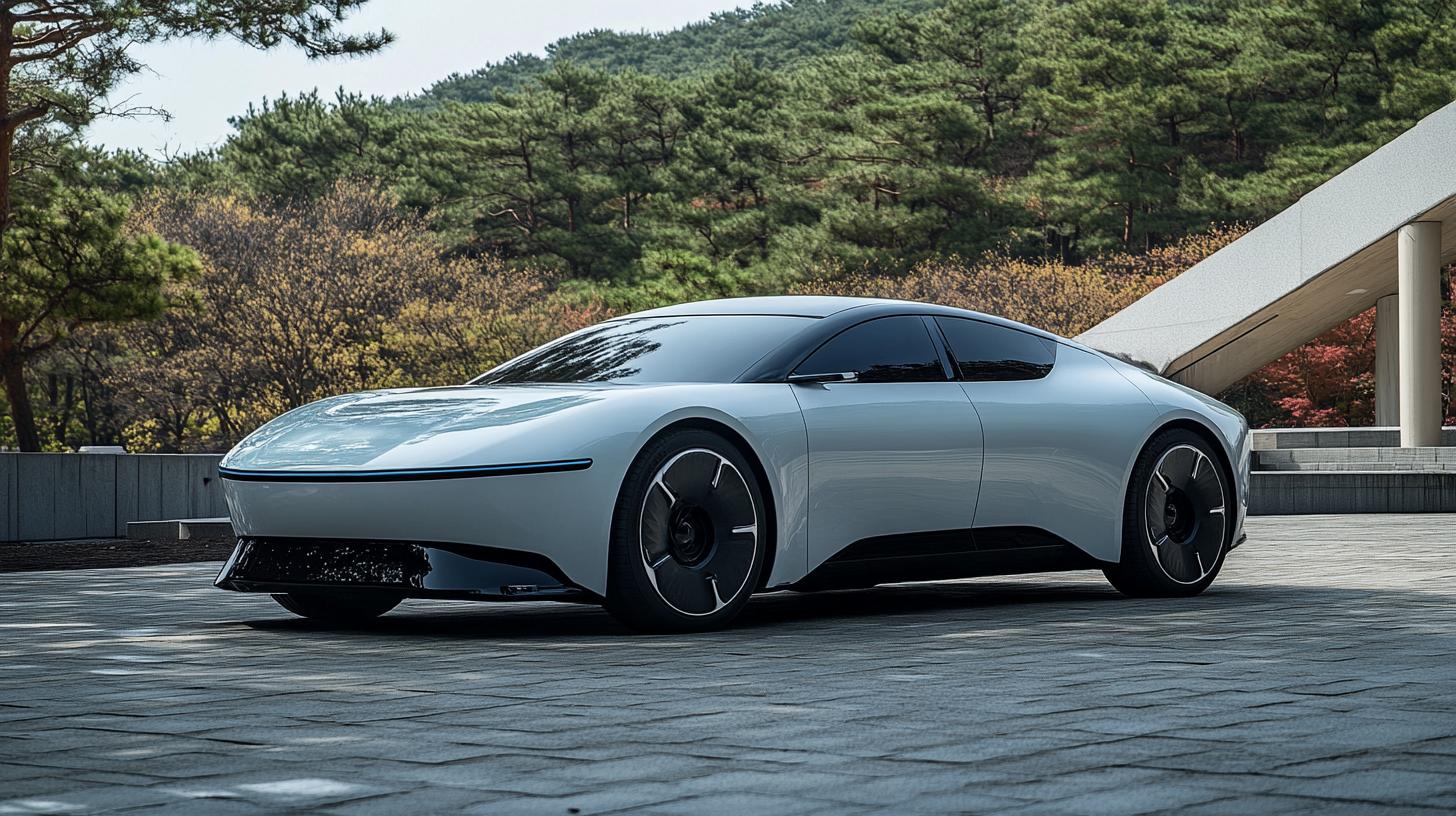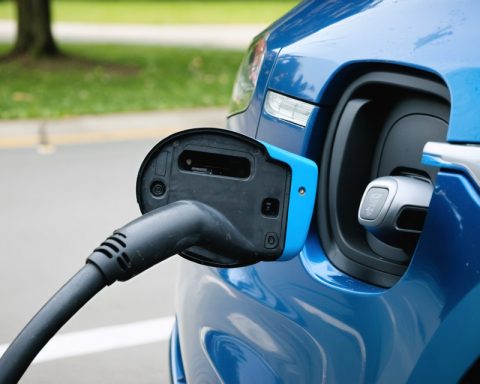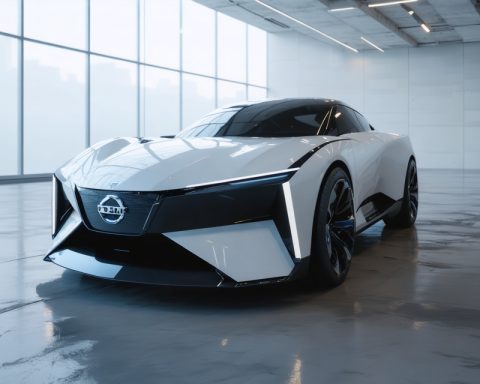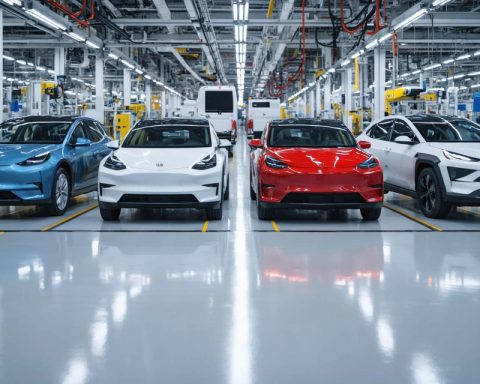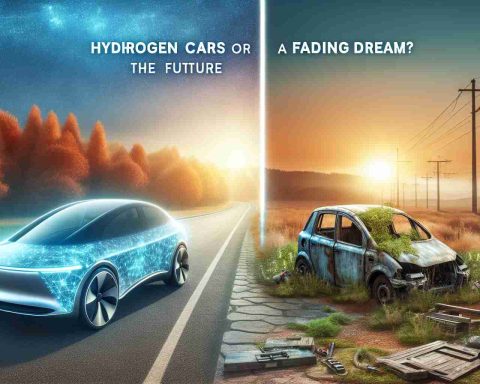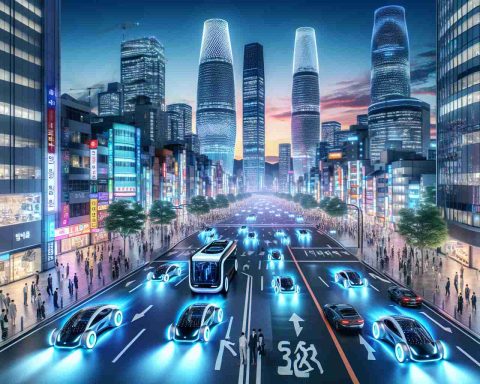In a stunning turn of events, South Korea is taking bold strides in the hydrogen frontier, challenging long-held monopolies in the field. Hyundai and Kia, two titans of Korean manufacturing, have unleashed a prototype of their hydrogen combustion engine, making waves in an industry that largely pivots around battery-electric vehicles.
The Great Hydrogen Leap
This groundbreaking prototype isn’t just a nod to environmental sustainability; it’s a game-changer. With claims of reducing carbon emissions by an astounding 99% and fine particulates by 90%, these engines set a new bar for green technology. The advanced high-pressure system, injecting hydrogen at 30 bar, highlights Korea’s commitment to efficient and eco-friendly automotive solutions.
A New Contender on the Global Stage
For decades, Japan has cornered the market with innovations from companies like Toyota. Now, Korea is challenging this dominance by presenting hydrogen engines as viable alternatives that echo the familiarity of traditional internal combustion engines, easing consumer transition. Unlike their electric counterparts needing frequent charges, these new-age hydrogen vehicles promise longer drives on a single refuel.
Infrastructure and Acceptance: Paving the Way Forward
The Achilles heel for hydrogen vehicles has been the inadequate refueling infrastructure. Anticipating this, Hyundai and Kia are designing cars with extended ranges, thus reducing the reliance on an extensive hydrogen station network. Their HTWO initiative emphasizes the development of a robust ecosystem for hydrogen fuel, extending beyond mere vehicular applications.
Visionary Implications
Korea’s venture into hydrogen engines isn’t just reshaping its automotive strategies; it signals a seismic shift in global clean mobility efforts. As these innovations gain traction, they might set a new standard in sustainable transportation, drawing in environmentally conscious consumers and intensifying the competition with Japan. The world watches as Korea charts a course toward a hydrogen-powered future.
Can Hydrogen Cars Overtake Electric Vehicles? Unveiling the Newest Rival in Green Mobility!
In the realm of sustainable transportation, the fervor surrounding Hyundai and Kia’s leap into hydrogen-powered vehicles has piqued global interest. Yet, while the spotlight rightfully focuses on their innovative hydrogen combustion engine, this could be just the tip of the iceberg for a much larger revolution. Across industries, hydrogen promises to reshape economies and societies, offering intriguing possibilities and raising pivotal questions about the journey to a cleaner future.
What Does Hydrogen Mean for Global Energy Independence?
As countries strive for energy independence, hydrogen fuel offers a tantalizing prospect. Unlike traditional fossil fuels, hydrogen can be produced locally through a variety of methods, including electrolysis powered by renewable energy sources. This autonomy from imported oil and gas significantly alters the geopolitical landscape, potentially reducing dependency on oil-rich nations. Nations embracing hydrogen might witness a decoupling from the volatile prices of oil markets, fostering a stable economic milieu aligned with sustainable practices.
How Might Communities Adapt to Hydrogen Economy?
The shift towards a hydrogen economy undoubtedly affects local communities. Jobs related to hydrogen production, storage, and distribution could see a boom, leading to economic revitalization in areas sagging under the weight of fossil fuel dependency. Cities pioneering hydrogen infrastructure might become epicenters of green innovation, propelling technological advances and drawing talent from around the world. However, it’s crucial to address how communities navigate the challenges of transitioning from traditional energy sectors to avoid economic disruption.
The Environmental Debate: Are Hydrogen Cars Truly Clean?
While hydrogen combustion emits only water vapor, the environmental benefits hinge on the production method. Blue and gray hydrogen, derived from natural gas, can still leave a carbon footprint unless carbon capture technologies are employed. The gold standard lies in green hydrogen, produced via renewable energy-powered electrolysis. As the industry matures, balancing production emissions against operational cleanliness remains a contentious topic. How nations prioritize investments in green hydrogen over other forms will be crucial.
Interesting Facts: Hydrogen Beyond Mobility
1. Hydrogen in Steel Production: Hydrogen is being explored to reduce CO2 emissions in steel manufacturing, potentially revolutionizing one of the world’s most carbon-intensive industries.
2. Long-Duration Energy Storage: Hydrogen can store energy for long durations, which could solve the intermittency issues of renewable sources like wind and solar power.
3. Aviation and Maritime Opportunities: Efforts are underway to integrate hydrogen fuel in aviation and shipping, leading to significant reductions in emissions from sectors notoriously difficult to decarbonize.
Can Hydrogen Vehicles Compete with Electric Vehicles?
The race between hydrogen and electric vehicles continues to evolve, but can hydrogen cars realistically dethrone battery-electric vehicles, synonymous with sustainable transportation today? While hydrogen vehicles boast longer ranges and faster refueling times, they face hurdles, including limited refueling infrastructures and higher production costs. Electric vehicles continue to dominate due to more established charging networks and cost-effective production. Whether hydrogen can close this gap may depend on rapid infrastructure development and technological breakthroughs.
For those intrigued by the evolution of hydrogen and sustainable energy, exploring reputable sources can deepen understanding and inform perspectives. Discover more on sustainable energy solutions and the future of hydrogen at International Energy Agency (IEA) and U.S. Department of Energy: Hydrogen and Fuel Cells.
The intricate dance within the hydrogen industry promises not just technological feats but a transformation of societal and economic frameworks. As South Korea and others carve new paths with hydrogen, the world watches, curious about who will lead the way in the next era of clean energy.
